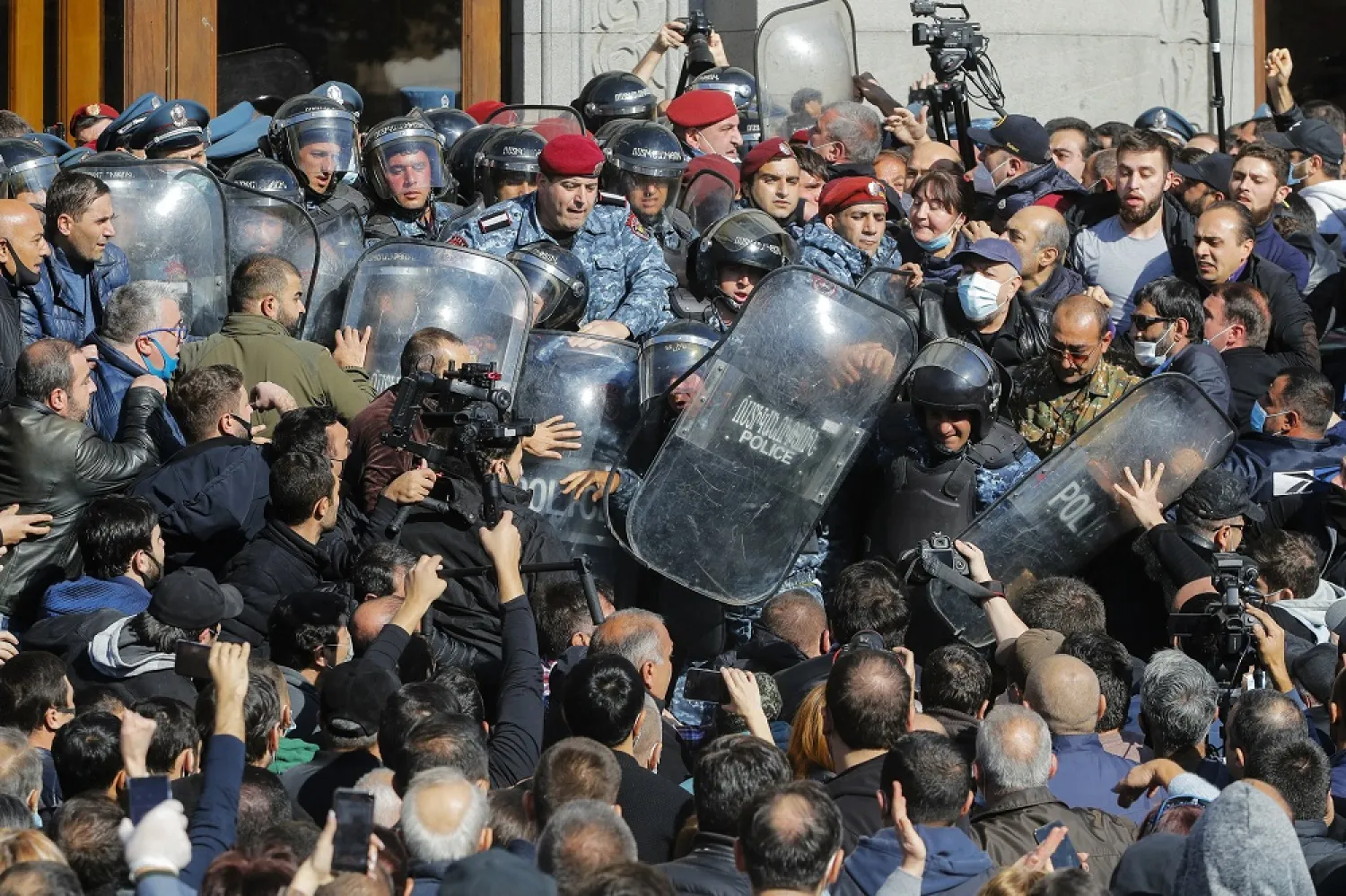Thousands of people protested in Armenia's capital on Wednesday, demanding the prime minister's resignation after he signed an agreement with Azerbaijan to halt weeks of fighting over Nagorno-Karabakh that calls for territorial concessions in favor of Azerbaijan.
The rally organized by opposition parties in Yerevan reportedly drew up to 10,000 people. Some clashed with police, and many were detained and released later in the day. Demonstrators chanted “Nikol, go away” and “Nikol, the traitor,” referring to Armenian Prime Minister Nikol Pashinian.
The unrest was triggered by a Moscow-brokered truce Armenia and Azerbaijan agreed to early Tuesday after more than six weeks of deadly clashes over Nagorno-Karabakh, a separatist region that lies within Azerbaijan but has been under control of ethnic Armenian forces backed by Armenia since a separatist war there ended in 1994.
The two ex-Soviet nations have been locked in a conflict over the territory for decades. Heavy fighting flared up in late September and has left hundreds, possibly thousands, dead in the biggest escalation in a quarter-century.
Several ceasefires announced over the past six weeks failed to halt the violence, but the current agreement appeared to be holding, with neither side reporting any more fighting since it came into force.
The pact, which is celebrated in Azerbaijan and has angered Armenians, calls for Armenia to turn over control of some areas its holds outside the borders of Nagorno-Karabakh. They include the Lachin region, which the main road leading from Nagorno-Karabakh to Armenia passes through. The agreement calls for the road, the so-called Lachin Corridor, to remain open and be protected by Russian peacekeepers.
The deal also calls for transport links to be established through Armenia that would connect Azerbaijan and its western exclave of Nakhchivan, which is surrounded by Armenia, Iran and Turkey.
A total of 1,960 Russian peacekeepers, some of whom have already arrived in Nagorno-Karabakh, are to be deployed in the region under a five-year mandate to secure the truce.
It came days after Azerbaijan pressed its offensive deeper into Nagorno-Karabakh and took control of the city of Shushi, strategically positioned on heights overlooking the regional capital of Stepanakert.
Nagorno-Karabakh’s separatist leader, Arayik Harutyunyan, acknowledged Tuesday that “had the hostilities continued at the same pace, we would have lost all of Artsakh (an Armenian name for Nagorno-Karabakh) within days.”
Pashinian said in a series of video statements on his Facebook page that it was “extremely painful for me personally and for our people,” calling the situation a “catastrophe." On Wednesday, he said he signed the agreement to avoid “a full collapse” of the region and deaths of thousands of troops.
Armenian opposition politicians on Wednesday called the agreement “treacherous" and “humiliating” and demanded that Pashinian step down. They also announced plans to try to remove Pashinian and his team from power.
“We need to save Armenia and Artsakh from Pashinian,” Ishkhan Saghatelyan, a member of the Armenian Revolutionary Federation-Dashnaktsutyun political party, said at the rally in Yerevan.
Opposition lawmakers called an emergency session to consider ousting Pashinian, but there were not enough parliament members present for a quorum. Pashinian's My Step faction holds 88 out of the 132 seats in the country's parliament, and members of the faction largely ignored the session.









